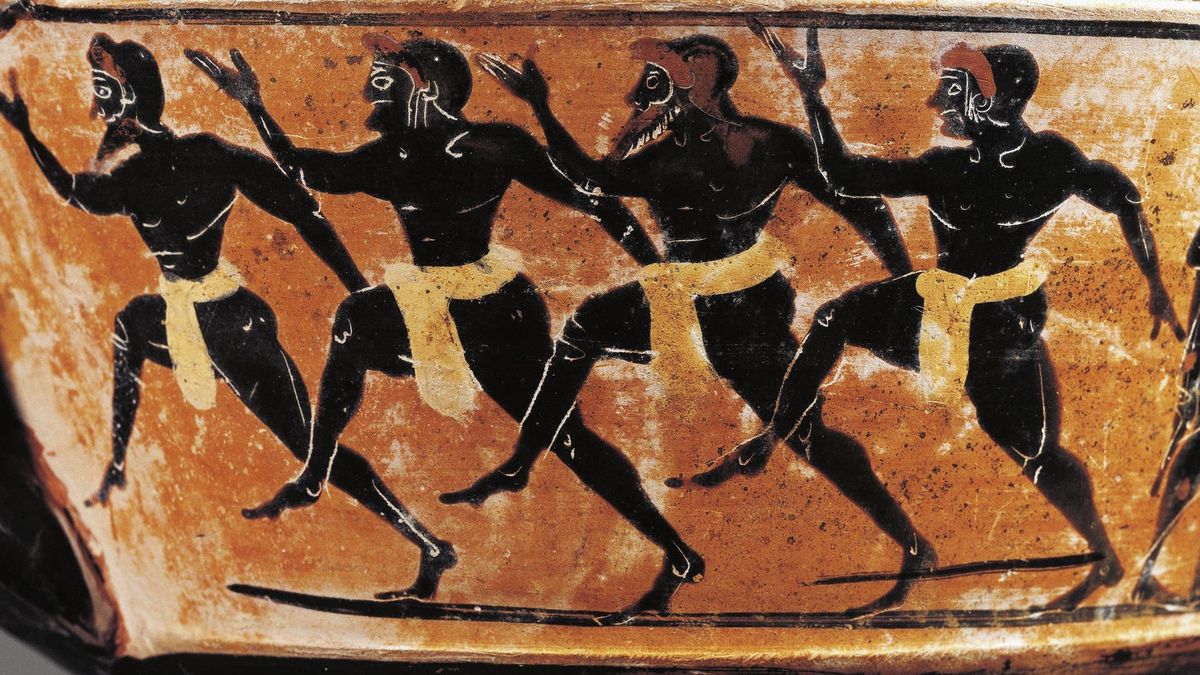
Greek sports have a rich history that dates back thousands of years. From the ancient Olympic Games to modern-day competitions, Greece has always been a hub of athletic excellence. But what makes Greek sports so fascinating? Greek athletes were not just competitors; they were heroes, celebrated for their strength, skill, and dedication. The ancient Greeks believed that physical fitness was as important as intellectual prowess, leading to a culture that revered sports. Today, Greece continues to produce world-class athletes who excel in various disciplines. Whether you're a history buff or a sports enthusiast, the world of Greek sports offers something for everyone. Let's dive into some intriguing facts about Greek sports that highlight their enduring legacy and influence.
Key Takeaways:
- Ancient Greek sports, like the Olympic Games and Pankration, laid the foundation for modern sports, inspiring events like the marathon and the Olympic motto "Faster, Higher, Stronger."
- Greece continues to excel in sports today, with football, basketball, water polo, and athletics being popular, and unique traditions like the Torch Relay and Panathenaic Games reflecting its rich cultural heritage.
Ancient Greek Sports
Greek sports have a rich history that dates back thousands of years. Ancient Greece is often credited with laying the foundation for modern sports.
- The Olympic Games originated in ancient Greece around 776 BC. Held in Olympia, they were a festival to honor Zeus.
- Pankration was a popular ancient Greek martial art combining boxing and wrestling. It was known for its minimal rules.
- The stadion race, a short sprint of about 192 meters, was one of the earliest and most prestigious events in the ancient Olympics.
- Chariot racing was a thrilling and dangerous sport in ancient Greece, often held in large hippodromes.
- The Pentathlon included five events: long jump, javelin throw, discus throw, stadion race, and wrestling.
Influence on Modern Sports
Greek sports have significantly influenced modern athletic competitions and events.
- The modern Olympic Games were revived in 1896 in Athens, inspired by the ancient Greek tradition.
- The marathon race was introduced in the first modern Olympics, inspired by the legend of Pheidippides, who ran from Marathon to Athens.
- The concept of the gymnasium as a place for physical and intellectual education originated in ancient Greece.
- The Olympic flame tradition, where a flame is lit at Olympia and carried to the host city, began in ancient Greece.
- The Olympic motto "Citius, Altius, Fortius" (Faster, Higher, Stronger) reflects the Greek emphasis on physical excellence.
Famous Greek Athletes
Throughout history, Greece has produced many notable athletes who have left their mark on the world of sports.
- Milo of Croton was a legendary wrestler in ancient Greece, winning numerous Olympic titles.
- Leonidas of Rhodes was a famous runner who won 12 Olympic titles in the 2nd century BC.
- Spyros Louis became a national hero after winning the first modern Olympic marathon in 1896.
- Nikos Galis is considered one of the greatest basketball players in European history.
- Pyrros Dimas, a weightlifter, won three consecutive Olympic gold medals and one bronze.
Greek Sports Today
Modern Greece continues to have a vibrant sports culture, with athletes excelling in various disciplines.
- Football (soccer) is the most popular sport in Greece, with the national team winning the UEFA Euro 2004.
- Basketball is also hugely popular, with Greece winning the European Championship in 1987 and 2005.
- Water polo is a strong sport in Greece, with the national team consistently performing well in international competitions.
- Athletics remains a significant part of Greek sports, with athletes competing in events like the marathon and track and field.
- Tennis has gained popularity, with players like Stefanos Tsitsipas achieving international success.
Unique Greek Sports Traditions
Greece has some unique sports traditions that reflect its rich cultural heritage.
- The Torch Relay is a tradition where the Olympic flame is carried from Olympia to the host city, symbolizing peace and unity.
- The Panathenaic Games were held in ancient Athens every four years, featuring athletic competitions, music, and religious ceremonies.
- Zappas Olympics were a series of athletic events held in Greece in the 19th century, which helped inspire the revival of the modern Olympics.
The Final Whistle
Greek sports have a rich history that continues to influence modern athletics. From the ancient Olympic Games to contemporary sports like soccer and basketball, Greece has left an indelible mark on the world of sports. The ancient Greeks introduced competitive events that tested strength, speed, and endurance, laying the groundwork for today's global sporting culture. Modern Greek athletes continue to excel, bringing home medals and setting records. Whether you're fascinated by the ancient traditions or the modern achievements, Greek sports offer a captivating blend of history and excitement. So next time you watch the Olympics or a soccer match, remember the roots of these competitions trace back to the ancient Greeks. Their legacy lives on, inspiring athletes and fans alike. Keep exploring, and you'll find even more intriguing facts about Greek sports.
Frequently Asked Questions
Was this page helpful?
Our commitment to delivering trustworthy and engaging content is at the heart of what we do. Each fact on our site is contributed by real users like you, bringing a wealth of diverse insights and information. To ensure the highest standards of accuracy and reliability, our dedicated editors meticulously review each submission. This process guarantees that the facts we share are not only fascinating but also credible. Trust in our commitment to quality and authenticity as you explore and learn with us.
